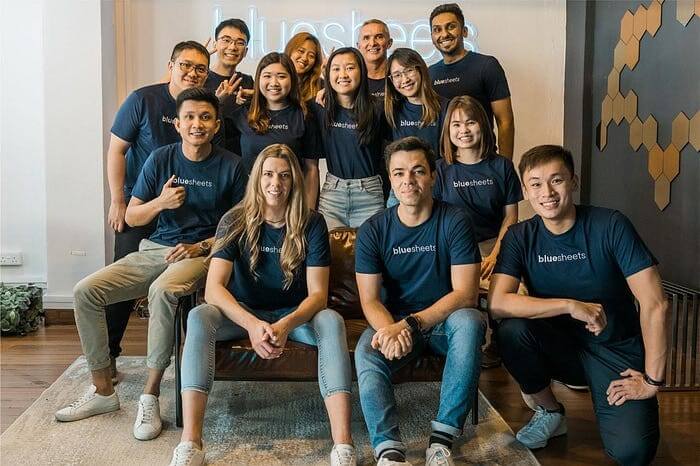
BLOG
ask a VC: Qualgro

share:
In a series of blogs we’re speaking to Southeast Asia’s leading VC funds to find out about their thoughts on the current state of the region’s startup and venture ecosystem and what they currently are looking for in companies.
This week we’re talking with Peter Huynh from Singapore and ANZ-based venture capital firm Qualgro.
how is the Southeast Asian startup and VC ecosystem looking in 2019?
It continues to be buoyant, as buoyant as its ever been. There have been more funding rounds in the first half of this year than there were in 2018, although the amount of capital deployed is less. This is likely because there are more earlier stage deals but fewer larger deals (series B onwards) than last year.
the number of VCs seems to grow each year. Will this continue and do you see more large US funds setting up shop in Singapore?
We definitely are seeing more international funds (not just from the US) landing in Singapore. There are also more local fund managers emerging which is growing the ecosystem. MAS has simplified the application processes for creating new funds which has made it faster for new funds to start up, which is positive for the community.
It’s a sign of a healthy ecosystem. There is a broadening of the distribution of capital, which means that we’re starting to see more funds that are specialising in fintech, health and other verticals.
has the series B crunch been resolved?
There are more sources of potential series B funding in the region than there ever has been before. The requirement to go to the US or to Europe to find that series B is less true today than it has ever been. Some funds in the region that were initially investing at an earlier stage, have increased the size of their funds so that they can lead series B rounds. And as mentioned, there are more international investors coming in as well, some of which are setting up their own growth funds.
All that said, it doesn’t mean that it’s necessarily easy to raise money, but it’s better today than it has been in the past.
what the impact on the ecosystem of the tech unicorns, eg Grab, Go-jek, Tokopedia
Founders today can have more confidence that it is possible to build large tech businesses from this region – they have been given examples of what is possible. It also gives new potential founders, perhaps some in currently in corporate life, that there is legitimacy to making the leap into a startup.
On the flipside, there is the potential that these larger startups are driving up the cost of acquiring tech talent, which can make it more difficult for smaller startups. But these smaller startups can compete in other ways: flexibility of work circumstances, more responsibility, and higher share options for key staff.
people talk about Indonesia due to its market size, but which countries in Southeast Asia are producing amazing startups?
Funding to Vietnam has increased significantly over the last year or so. The raw ingredients are there – a growing middle class, a young population with strong engineering talent and a strong entrepreneurial spirit. The ecosystem is still predominantly B2C-focussed, although that is evolving, which we’re finding very interesting.
what kind of startups are catching your eye. How has that changed in the last 12 months?
As mainly a B2B investor, we take a thematic approach to investing, and the spaces we’ve been looking at closely include: manufacturing AI, medical AI, and AI that responds to visual cues in their interaction with humans.
prediction for the Southeast Asia ecosystem for the next 2 years
We’re coming into an interesting time in the lifecycle of many of the funds in Singapore. Because of this, there will definitely be more of a focus on exits, both large and small. What we’re missing in the ecosystem currently is the cadence of M&A and trade sales that we see in more mature ecosystems.
What this means if you’re a founder is that you will increasingly need to think about how to build a profitable business at regional scale, since those are the ones that are more likely to get acquired.
If a competitor is acquired, that will also change the competitive dynamics in a given space, since that company may then have access to capital in order to accelerate their scale (similar to what occurred with AliBaba investing $2b to accelerate the growth of Lazada in 2018 after acquiring control in 2016).
tips for founders pitching to you?
- Do your research. Understand our investment thesis. Reach out to founders that we work with, understand how we’ve helped their companies.
- Don’t try to oversell your progress. We are looking for a bold vision, but we want to work with people practicing radical candour – ‘this is where we are, this is what we’ve done well this is what hasn’t gone so well, and what we’ve learnt’.
- We infer a lot from every interaction with you and your team. How detail oriented are you? How prepared are you? How patient? What are your business ethics? We’ll be in a relationship with you for the next 5 – 8 years, so we need to get a good sense of who you are as a founder and your team.
- Try to see the investment process as a matter of fit. You usually only need one or two investors to say Yes – the more transparent you are throughout the process, the more likely you will find the investor that fits you best.
explore our other blog posts

